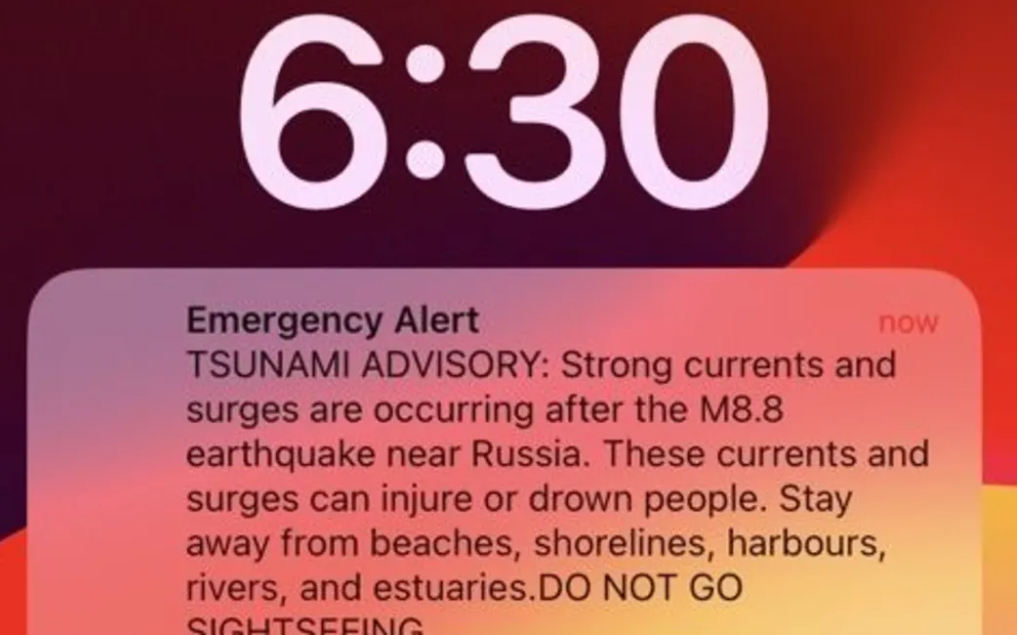
And he reckons his was better, proving its worth during the aftermath of the Christchurch quakes.
The National Emergency Management Agency (NEMA) is investigating glitches in the current system following the magnitude 8.8 earthquake off Russia on Wednesday.
Some Kiwis say they received up to 50 alerts, while some did not receive any at all.
Matthew Nolan founded an alternative system, Readynet, which was used during the Christchurch Earthquakes and to mobilise volunteers cleaning up the Rena oil spill.
"I think that the NEMA system - which costs them the best part of $20 million - has miscued for them, and it's certainly not the first time," he said on Friday.
"There is a record of it waking people up at night for messages that were text messages only, and as well as circumstances where people did not get the alert that they should have got."
NEMA spokesperson John Price said on Thursday there were many reasons for the differences.
"It could be different providers and different cell towers. There's a lot of possibilities, but this is something we're working through. We'll look into it, absolutely."
Nolan criticised the NEMA system as being "one-way" only, and unable to tell if people had actually received the message as no information was sent back.
"Whereas other systems and a better system, and yes, our system was interactive, and we could see where the messages had been received.
"So for example, you send a message out into an area where there's a big river and cell towers have been wiped out. Our system would tell you that all the people in that river have not received the message - all the people in that river valley have not received the message. You can deduct from that, that in fact, the cell phone towers are out."
He claimed the Emergency Mobile Alert system "can't target messages".
"It's a modern equivalent of a World War 2 fire siren. It alerts people that something's happening and it gives them a brief message, but it can't target messages.
"So for example… people in Upper Hutt got no message. In Lower Hutt, lots of people got the message. So, you know, why is there a difference between one area and another?"
According to the NEMA website, the current system can "broadcast to all capable phones from targeted cell towers to areas affected by serious hazards".
"You may not receive an alert if you are out of mobile coverage, mobile phone towers are damaged, or there is a power outage."
Price said the variation in coverage "could be different providers and different cell towers, there's a lot of possibilities".
Nolan suggested the system was not working as well as it could because it was now owned by "a banking conglomerate out of New York".
New Zealand's system was provided by Dutch company one2many, which is now a division of Everbridge Public Warning, an American software company that specialises in alert systems.
"Now, those sorts of companies are chasing the big markets, the multi-million markets, and I think New Zealand is a very small end of that market," Nolan said. "There is no office of that organisation in Wellington to work alongside emergency services in New Zealand…
"I think that a New Zealand-owned, developed, supported, helpdesked system is the best, and that's what we had built, and our system is now mothballed."
He said he asked officials to look at using Readynet for the national system, but "they never ever fully examined what we had, even though it was used during Christchurch to communicate after the Christchurch earthquake, to communicate with all the residents and contractors left inside the cordons.
"And that was, information such as, well, 'The cordon will be open on the corner of such and such street at four o'clock this afternoon to allow people in and out for shopping there.' That's the sort of stuff you can't put on Facebook."
As of Friday morning, a tsunami advisory remained in place. Pacific nations emerged relatively unscathed.













